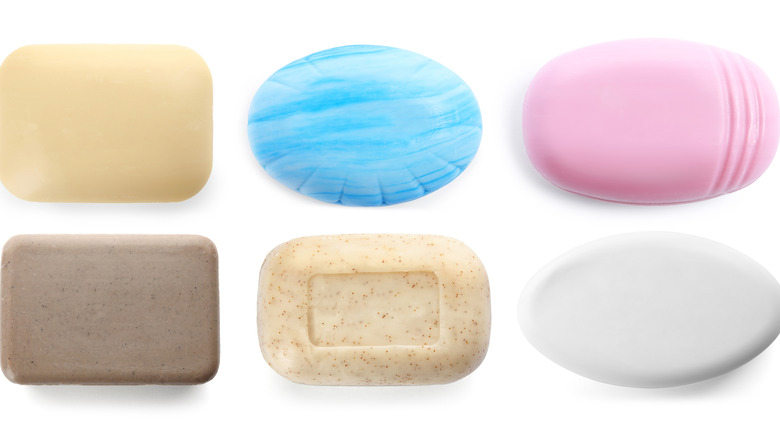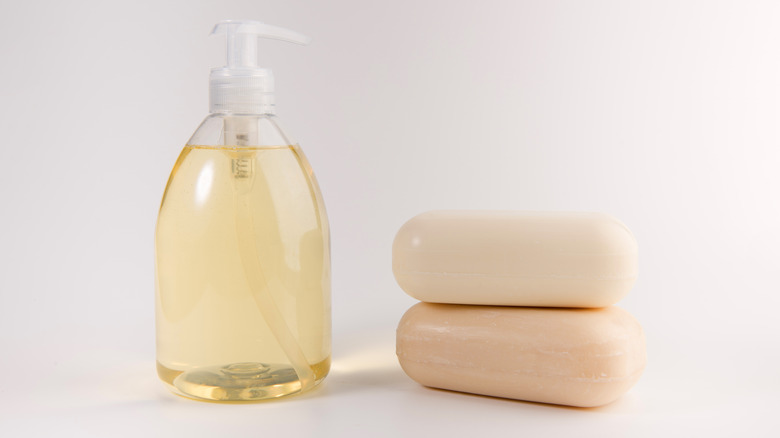The Real Reason Soap Bars Are Making A Comeback
Once a staple in every bathroom, bar soap has gotten a rather, um, dirty reputation in recent years. No one likes to scrape off the bits that stick to the soap holder in the tub or wrestle with the little leftover slivers. Plus, there's the question of whether the bars are just floral-scented petri dishes of accumulated bacteria from repeated use. With the emergence of liquid body wash and hand soap on the market, shoppers have embraced the convenience and perceived hygiene of the bottled cleansers. As recently as 2015, sales of bar soaps started to decline, with younger consumers switching to shower gels and bottled hand washes (via Chicago Tribune).
Now the tide (or should we say, the Dove, Dial, and Ivory?) is turning. According to Industry Research's latest Bar Soap Market Report, the world spent about $300 million on soap bar brands in 2020, and that number is expected to grow by 1.1 percent by 2027.
Part of the reason for this growth is that the myth about the cleanliness of bar soaps is being dispelled. Dermatologists say that whatever germs accumulate on soap are easily removed just by simple scrubbing. "The surfactants in the soap in combination with water help to lift the bacteria and the viruses off, remove them from our skin and wash them down the drain," New York dermatologist Dr. Rachel Nazarian has explained to Refinery 29.
Why have we suddenly fallen back in love with the humble bar? Experts have some other theories.
Bar soap is better for the environment
Consumers are also keeping the environment in mind when they shop, experts say. All those bottles of soap and body wash — not to mention the refill containers — add up to a lot of plastic, and not all of it ends up in the recycling bin. By comparison, a little paper-wrapped bar sounds a lot more Earth-friendly. British dermatologist Dr. Anjali Mahto has told The Independent, "There has been a huge backlash against plastic waste as consumers become more socially responsible and reduce consumption from all areas ranging from skincare and cosmetics through to food and clothing packaging." Unilever's Dove brand has even gone so far as to remove the plastic coating on the outer wrap of their bar soap (via Cosmetics Business).
Major manufacturers are also improving their formulas to make the soaps less drying to the skin, according to New Beauty. For example, lye has traditionally been used in soaps, because it combines well with fats like palm oil to make a good lather. It's more common now to find bar soaps made of gentler detergents and more moisturizers. Artisanal soaps made from goat's milk, essential oils, and other soothing ingredients are also finding a wider appeal among consumers that want to support small businesses.
It all comes down to a matter of personal choice, but if you've been avoiding bar soap out of fear of harsh ingredients or hygiene, maybe it's time to give it another try.

